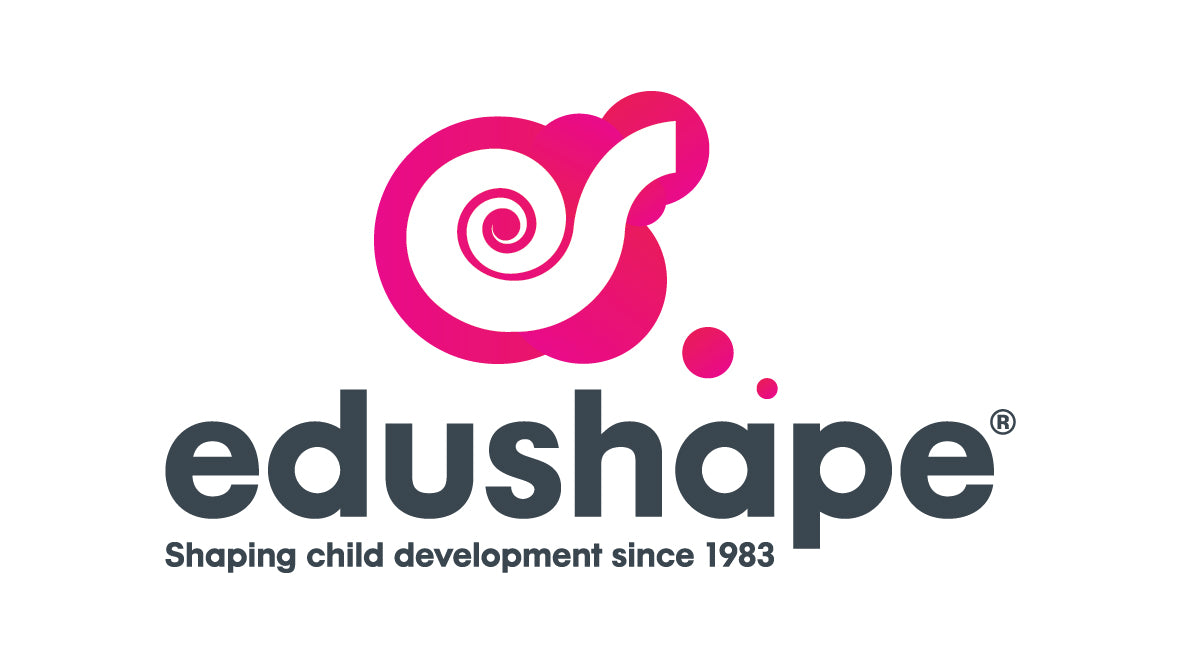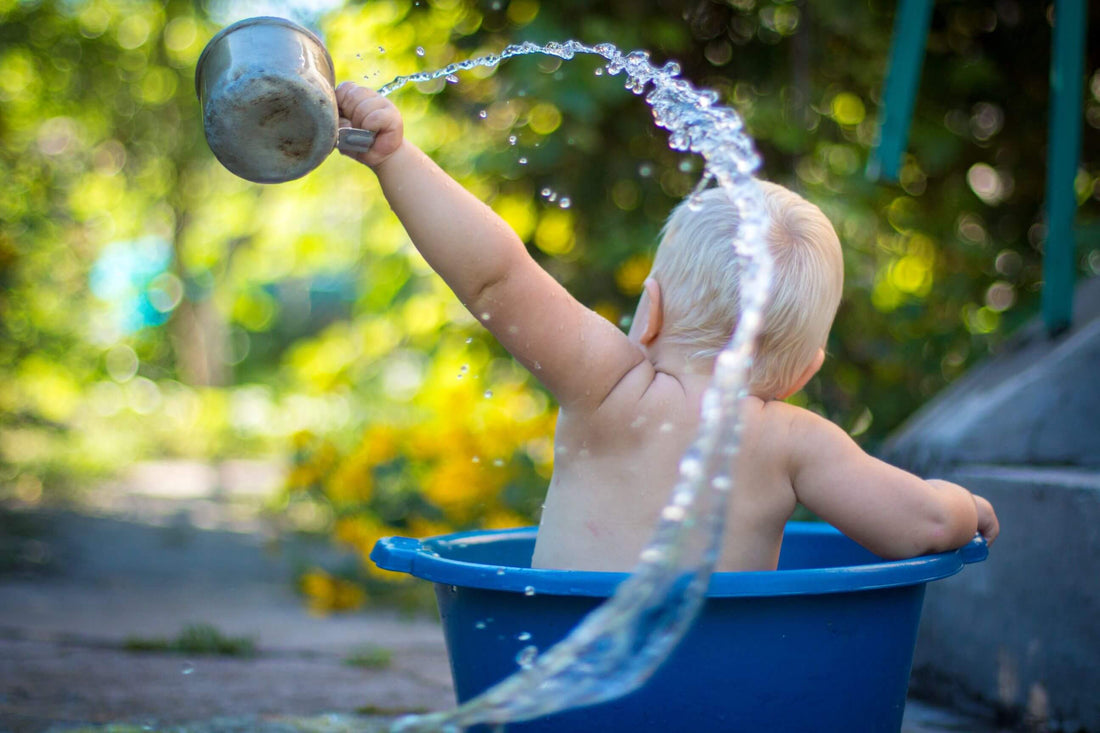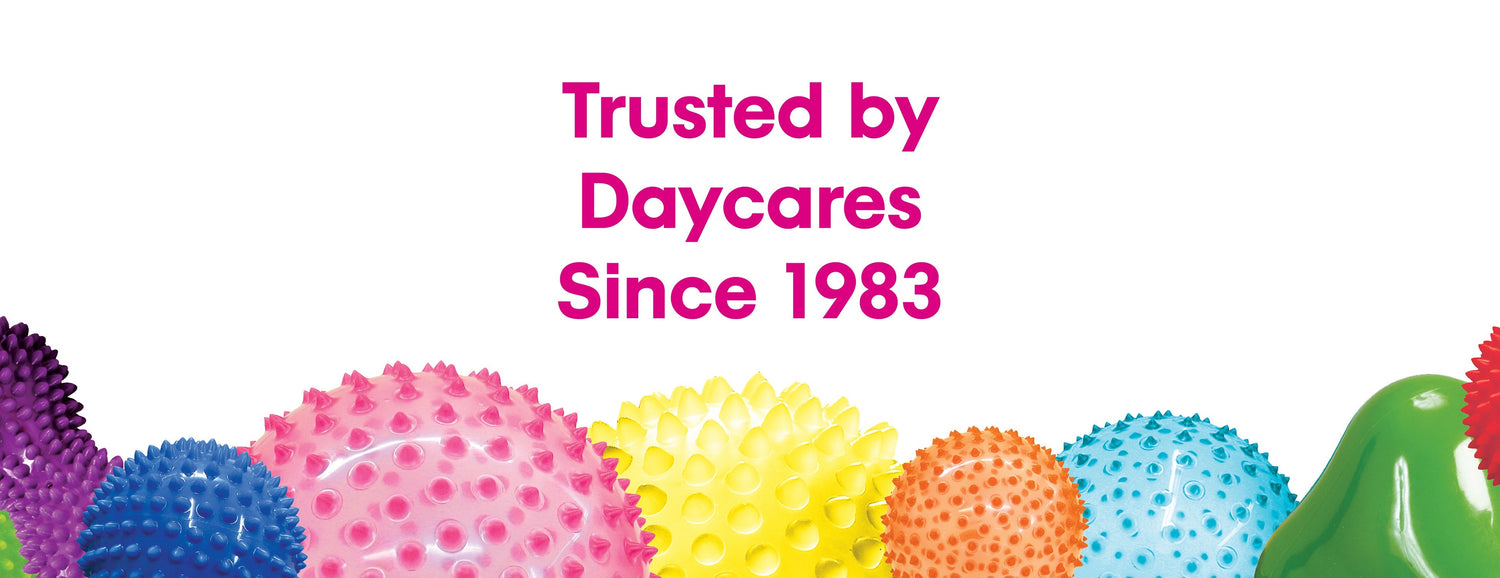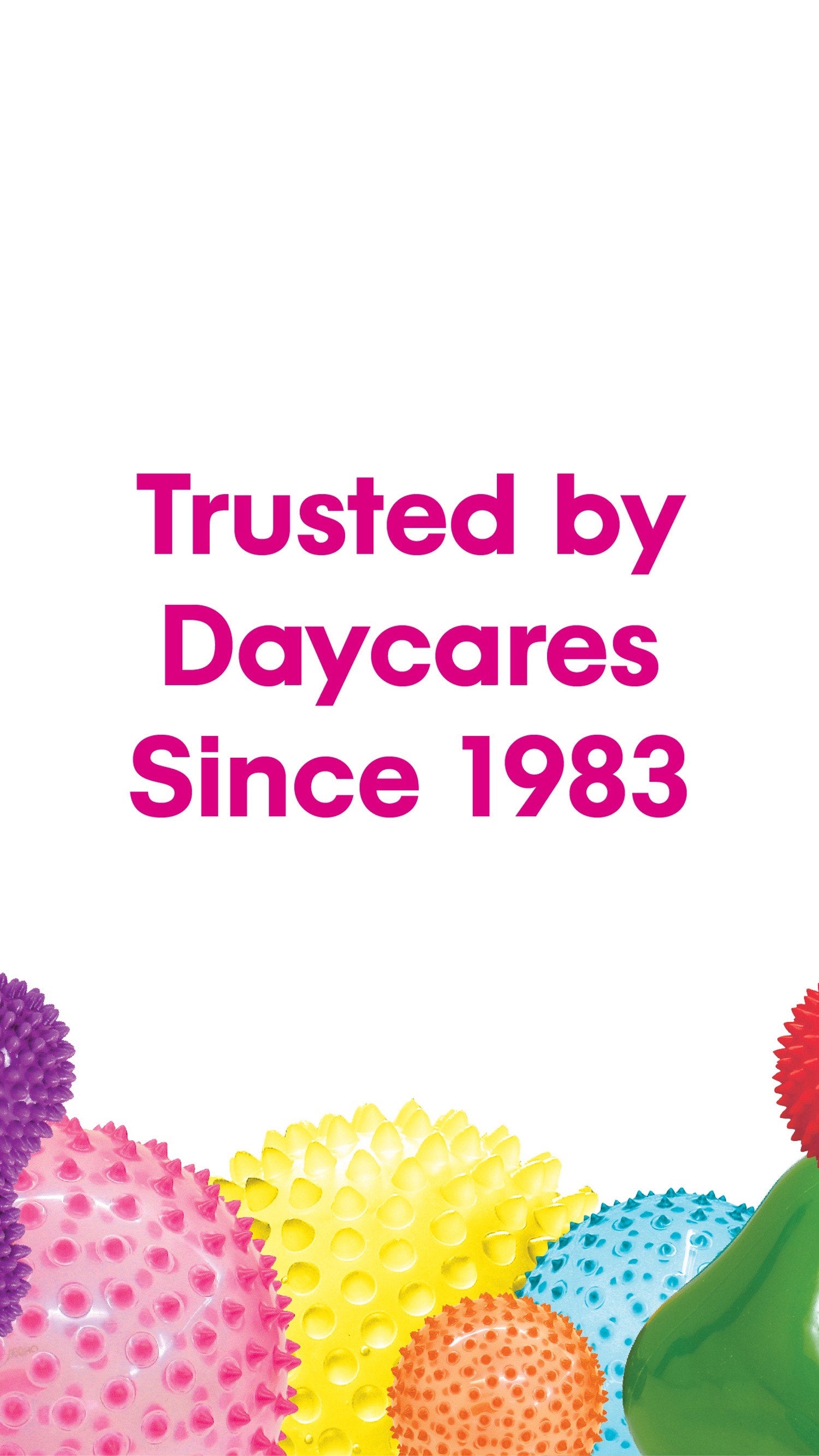What is sensory development?
Sensory development is when the five most familiar senses—touch, sight, hearing, smell and taste—and the two lesser known senses—vestibular and proprioception—begin to mature.
When a child uses their senses, their brain works to interpret that sensation. The stimuli cause the brain to strengthen and grow. The more a child engages their senses, the better their brain development.
This is where parents come in. The more opportunities a baby has to engage with their senses, whether through playing with sensory toys, going on walks outside, or trying different foods, the more developed their brain will become, preparing them for all that is life.
When is sensory development most important?
Sensory development begins when a baby is still in the womb and peaks in the first two years of life. While engaging a child’s senses continues to be important as they grow, for most children, their senses will be developed by their second birthday, with each sense having developed on its own timeline.
Because each sense is unique and serves its own purpose, knowing the timeline of when a parent should focus on a certain sense is the optimal way to maximize on sensory development in their children.
Touch
Touch is the very first sense to form, starting around eight weeks in the womb. Experts suggest babies can start experiencing touch, like heat, cold, pressure and pain, starting in the third trimester. However, the real learning period starts when they enter the world.
The second a baby is born, they begin learning through touch. For example, they can immediately feel the temperature changes on their skin, so start figuring out how to keep themselves warm. This is important because unlike an adult, they don’t know yet how to best regulate their temperature. That’s why you often see babies super bundled!
The fact that the baby is able to sense temperature differences helps with engaging the other senses. For example, they know how to adjust their mouth on their mother's nipple in order to eat.
When a baby is little they also are incredibly sensitive to touch—which is why cuddles and skin-to-skin is essential for developing their comfort with the world around them. Touch is also essential for helping them figure out their bodies, and how much space they take up in the world.
Sight
The sight organs (eyes) develop around the 33rd week in pregnancy. Sight is the most highly developed sense in a human being. Seeing isn’t just about looking, it’s about finding our way in the world, developing relationships and preferences through recognition, and keeping ourselves safe.
At first babies can only focus at a close range. They spend a good portion of their early days staring directly at the face of those feeding them, and begin to “track” objects with their eyes in the first few weeks of life. Their vision becomes “normal” around the age of two.
A baby’s vision should be stimulated early and often—but luckily, for a new baby, that’s easy! All you have to do is offer them opportunities to see new things. That could be as simple as a walk in the neighborhood or a trip to the store.
There are developmentally appropriate toys specifically designed to help babies engage their sight sense. High contrast patterns are key for the early days when a baby can only see black and white. Stimulating your vision and helping them determine shapes is important for strengthening both their cognitive abilities and gross motor skills.
Hearing
Of all the senses, hearing is often the most developed in the womb (even if a fetus only hears muffles!)
Starting in the 22nd week of pregnancy, talking to your baby or playing your favorite songs can be beneficial and enjoyable for you both. Research shows learning starts in the womb, with babies even being able to differentiate language by the time they’re born.
When a baby is born, they often show a preference for their mother’s voice, or other soothing, maternal voices. This is likely because they hear so much of their mom when they are in her belly.
Babies also are prone to enjoying rhythmic sounds when they are born. This can include shushing, and even machines mimicking a heartbeat, which they spent the second half of pregnancy listening to. Once born, these sounds can help them learn how to relax, or calm themselves, when they feel unnerved.
Taste
When a baby is growing in the womb, they get all their nutrients from the placenta. Once they are born however, they spend the first month of life starting to distinguish between several different tastes.
They have a clear, immediate preference for sweet—which is why they love breast milk and formula! Early on they’ll also discover sour and acidic tastes are not too tasty.
Around four months they will start to develop a taste for salt. This is when many babies start to eat and enjoy solids—and parents get to start experimenting with new flavors and textures. By six months, when most babies are eating solid meals every day, they really begin to use their sense of taste, as well as smell and touch, to learn about the pleasure of food.
Studies have shown that flavors babies taste from as early as when in the womb to throughout their early childhood can shape later food preferences. Research even shows that eating more pungent foods like garlic and anise when pregnant will help your baby develop more of a taste for it,.
Smell
A baby is born with a highly developed sense of smell, which continues to get stronger in their first eight years of life.
Since a baby is born without a strong sense of sight, they rely a lot on smell in the early days to help recognize people (like their parents), places (like their crib or car), and things (like their favorite toys or blankets). If a baby cries when someone new holds them, or after you wash their favorite toy, it may be because they don’t like their scent!
Immediately after birth they recognize the smell of their mother’s milk. They also can recognize her by her body odor. This is because in the womb a baby breathes in their mother’s amniotic fluid, which can smell like her.
The sense of smell is important for the development of other senses, especially taste and vision. It’s also very tied to memory.
Vestibular system
Our vestibular system is the first sensory system to develop in the womb and has a huge impact on how we move, rest, play, and learn. It helps our body stay balanced.
Once a baby is born, its vestibular system is engaged every time they move or change positions. Rocking and swinging your baby, and encouraging rolling, crawling, walking, and running, all are part of developing a healthy vestibular system. This is why tummy time is so essential from an early age!
Once a baby feels balanced enough they will likely start to walk. This is all because of the vestibular system. By engaging in this sense, a baby also learns how to use their body and when. It’s a big part of developing muscle tone.
Proprioception
Unlike many of the other senses, it’s harder to figure out when is the ideal timeline for engaging the proprioception sense in early childhood. However, it’s an easy (and important) thing to do from day 1.
Proprioception is the sense that lets us move our body without thinking about it. Writing, playing sports, holding objects, and brushing hair are all examples of this sense in action.
Swaddling your baby is one way to engage proprioception early on. Movements like reaching for a toy climbing or lifting, and stretching all are beneficial.
How can parents support sensory development in their children?
While maximizing stimulation of your child’s senses is important, it’s also important to not to overload them.
Think about it: After living peacefully in the womb for months, a baby needs to learn very quickly how to regulate all the external stimuli that comes with being born. Unlike adults, their abilities to do that are not yet fully developed. They need the time, space, and patience to adapt to all that’s thrown at them in the first hours, days, weeks, and months of life.
This is one of the reasons they need so much restorative sleep. For parents with children with sleep issues (and even those who don’t), the Smart Sleep Coach app is a great tool for building life-long healthy sleep habits and routines, and making sure your kids are getting the right type of sleep at the right time.
You can find information here for over- and under-stimulation of a child and its impact on sensory development.


